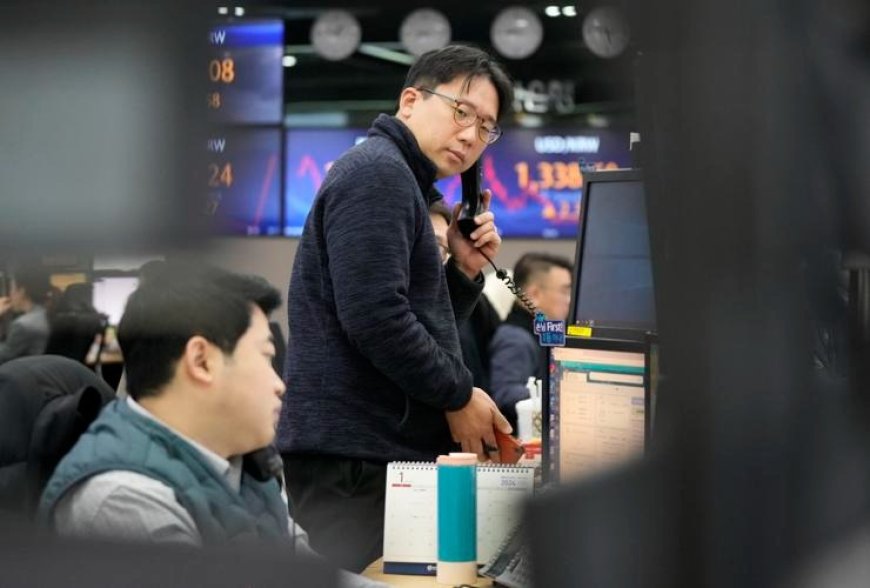Asian Stock Markets Suffer as China Economy Falters; Eyes on Fed Meeting
Asian Stocks See Decline as Chinese Economy Faces Challenges; Investors Await Federal Reserve's Decision

Asian markets witnessed a widespread decline, driven by concerns surrounding China's economic performance and anticipation ahead of the Federal Reserve's policy meeting.
On Wednesday, Asian shares experienced a notable downturn, compounded by a weakening Australian dollar and rising Japanese government bond yields. Investors reacted to unexpectedly soft inflation figures and growing speculations about the Bank of Japan's impending policy adjustments.
The focal point of market apprehension remains China, where official data unveiled a fourth consecutive month of contraction in manufacturing activity for January. This ongoing struggle underscores the challenges confronting the world's second-largest economy as it endeavors to regain momentum in the face of global headwinds.
MSCI's broadest index of Asia-Pacific shares outside Japan registered a 0.4% decline, signaling a potential monthly loss of approximately 5%. This reversal marks the end of a two-month winning streak for the region, reflecting investor unease amidst prevailing economic uncertainties.
A significant contributing factor to the market downturn is the substantial sell-off observed in Chinese equities this month. Investor sentiment has been dampened by concerns over the lack of decisive stimulus measures by Chinese authorities to support economic growth, exacerbating existing low investor confidence.
Mark Matthews, Bank Julius Baer's head of research for Asia, highlighted a notable shift in China's approach, indicating a newfound determination to stabilize the market following earlier incremental interventions.
In China, the blue-chip index recorded a 0.6% decline for the day and a significant 6% drop for January, marking its sixth consecutive monthly decline—a record-breaking streak. Similarly, Hong Kong's Hang Seng Index plummeted by over 1%, weighed down by losses in property and technology stocks, culminating in its worst January performance since 2016 with a 9% loss.
Meanwhile, insights from the Bank of Japan's January meeting revealed discussions surrounding the potential timing of an exit from negative interest rates and strategies for gradually phasing out the bank's extensive stimulus program. Consequently, Japanese government bond yields experienced a modest increase, with the two-year JGB yield reaching its highest level since December.
As markets brace for the Federal Open Market Committee (FOMC) meeting later in the day, investor sentiment remains cautious. While expectations lean towards the Fed maintaining current interest rates, market participants are eagerly awaiting insights from Fed Chair Jerome Powell's post-meeting remarks regarding future rate adjustments.
Despite lingering uncertainties regarding inflation, recent data indicating an unexpected increase in U.S. job openings in December suggests a resilient labor market, providing the Fed with flexibility to sustain higher rates.
In response to market dynamics, the U.S. dollar remained stable, while the Australian dollar depreciated following subdued inflation figures, sparking speculation of potential rate cuts.
Oil prices witnessed a slight decline following previous gains amid ongoing tensions in the Middle East. Brent futures dipped to $82.65 a barrel, while U.S. crude slipped to $77.64 per barrel. Meanwhile, gold retraced from a two-week peak, trading at $2,034.65 an ounce.
Also Read: Asia Markets Rally: Evergrande Woes Eased by China Stimulus, Fed Meeting in Focus
































































